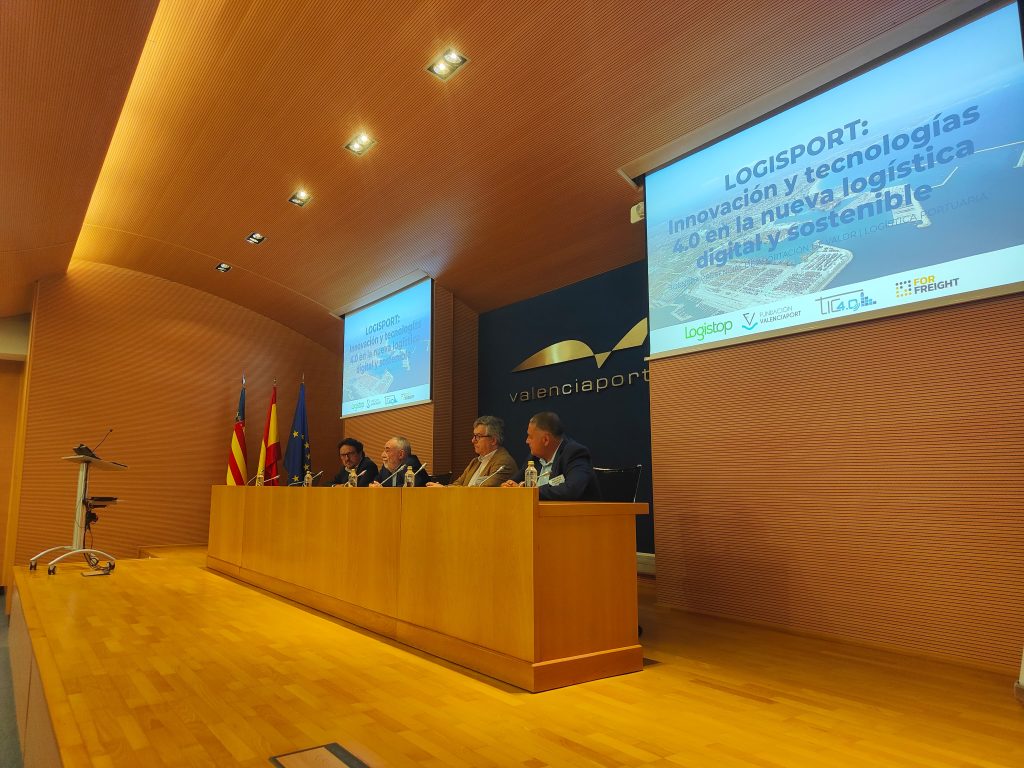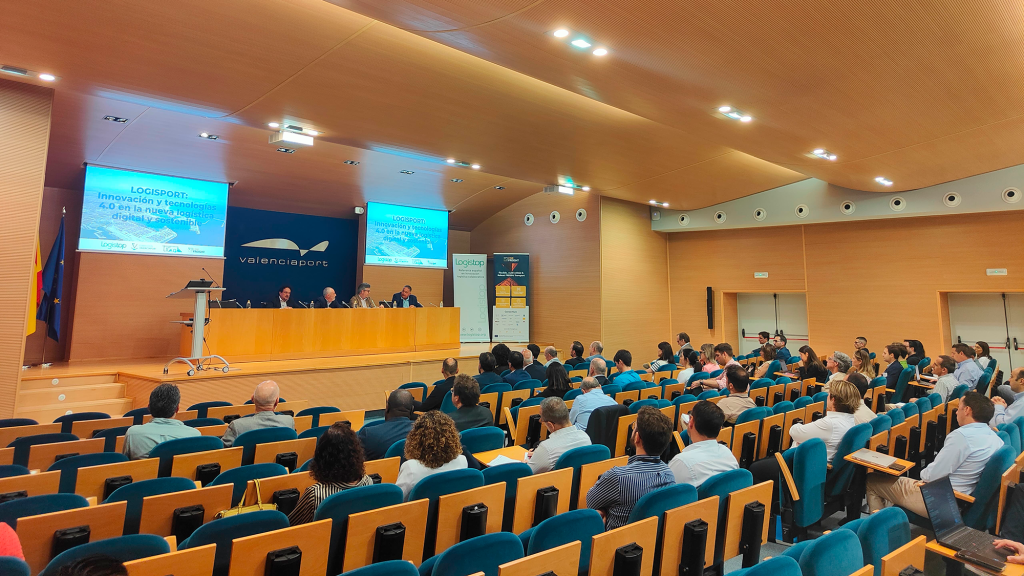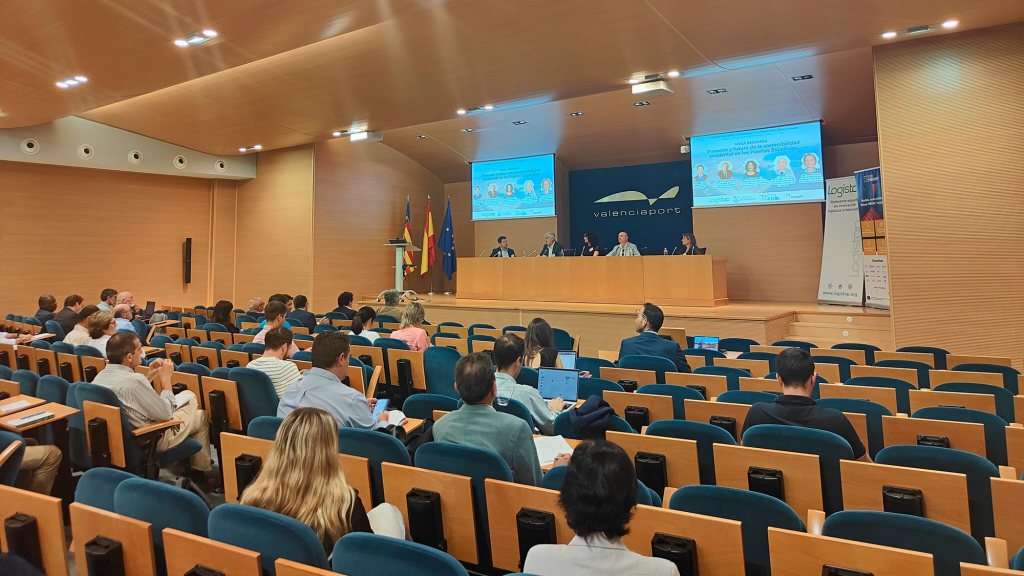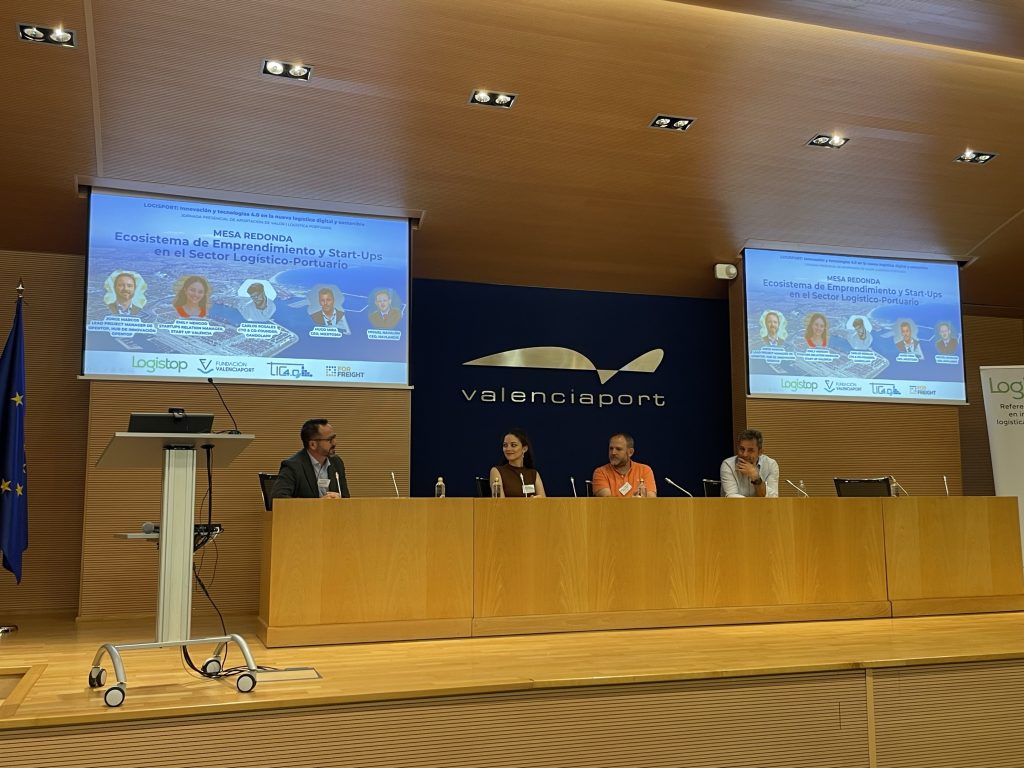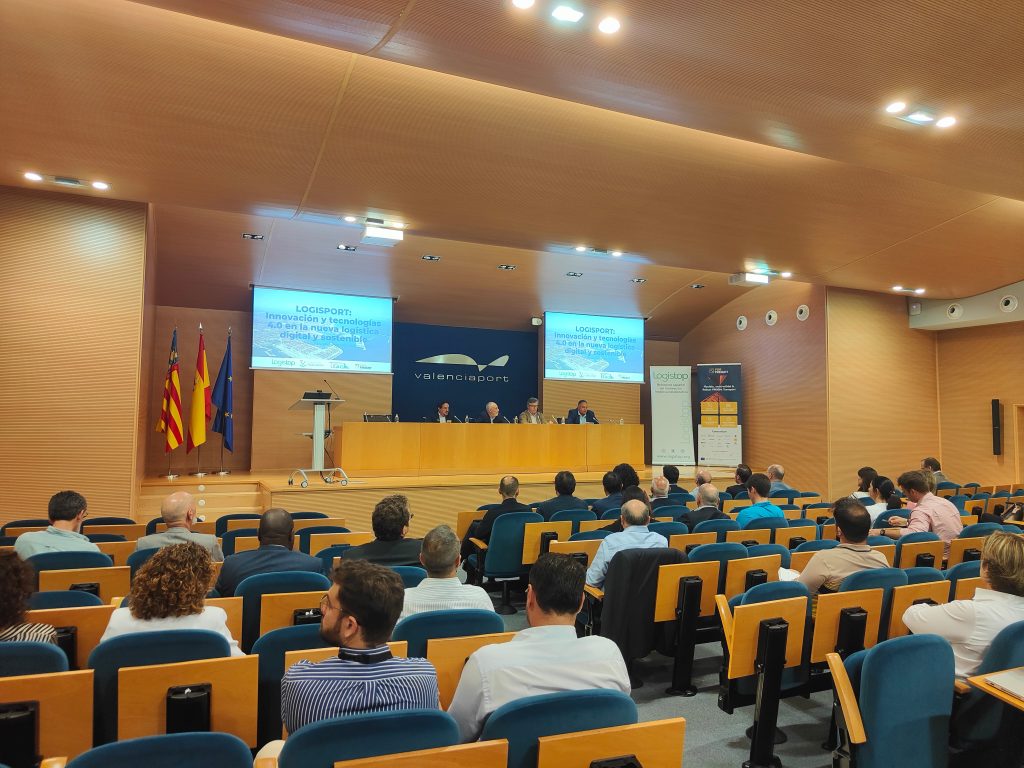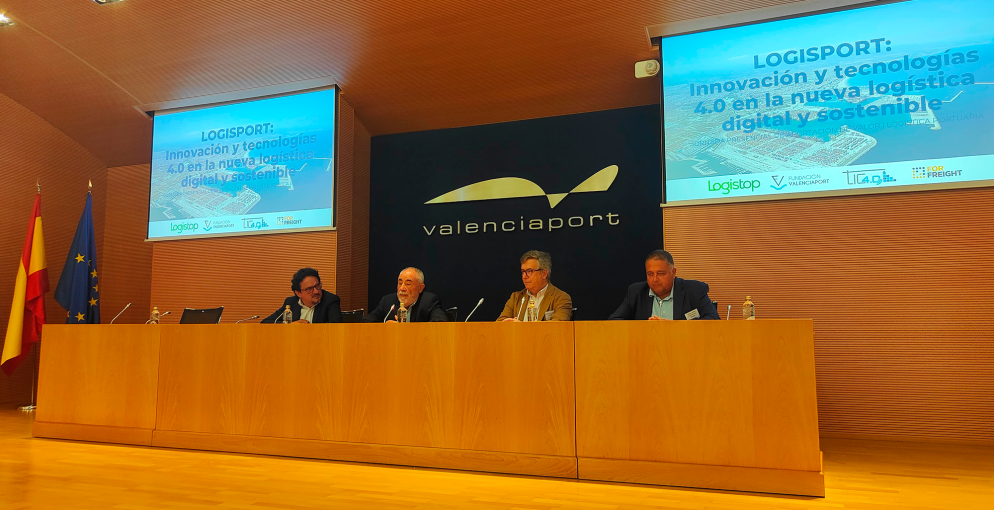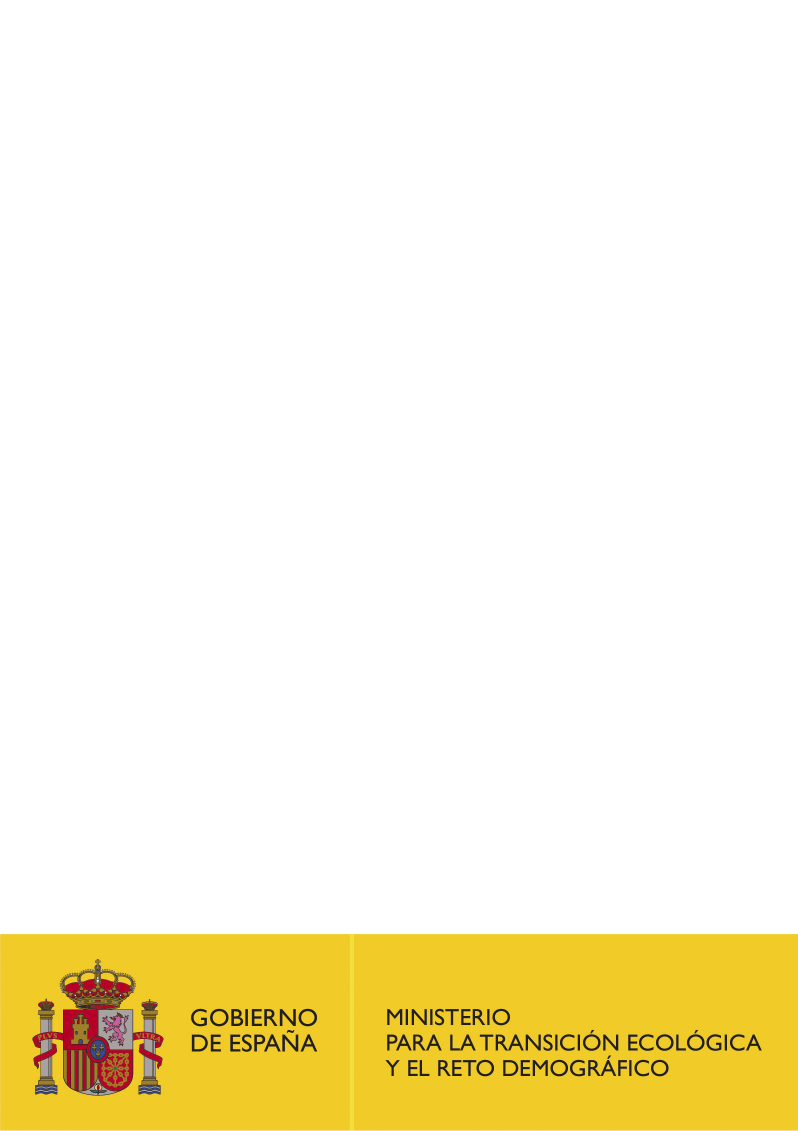Valencia, June 21st, 2024.- The Assembly Hall of the Port Authority of Valencia hosted yesterday the conference ‘Logisport: Innovation and 4.0 technologies in the new Digital and sustainable logistics‘, organised by Logistop in collaboration with Fundación Valenciaport. Around a hundred professionals and experts in the field of maritime-port logistics met to address the major challenges that the sector must face in terms of digitisation and sustainability in an environment in constant change and in which geopolitical changes determine the course to follow.
During the institutional opening, Francesc Sánchez, Deputy Director of Digital Transformation and Innovation of the Port Authority of Valencia and President of Fundación Valenciaport, stressed the importance of promoting innovation, digitisation and sustainability in order to transform and aspire to be leaders and not remain in the background.
For his part, Jaime Luezas, head of the Port Community Services Area of Puertos del Estado, added that not only sustainability and digitalisation are a challenge, but also collaboration and cooperation are fundamental aspects.
Antonio Torregrosa, Director General of Fundación Valenciaport, wanted to highlight the good moment that innovation is experiencing, both at national and European level, in which it is necessary to bear in mind that in order to launch an innovation project it is necessary to share and collaborate, both within the sector and outside.
In this sense, Tomás de la Vega, managing director, Logistop, emphasised the fundamental role that innovation plays in organisations, which, together with effective management of uncertainty, would create companies with a great competitive advantage.
Business challenges and geopolitical impact on the sector
The round table discussion Challenges of the logistics-port sector in the current geopolitical and business context, moderated by Tomás de la Vega, managing director of Logistop, debated current issues that are having an impact on the maritime-port sector and which national companies must face, in addition to competing with large multinationals.
For Jaime Gimeno, Director of Business Development at Ership, the challenge of the decarbonisation process is not to find the means or technology, but rather how to ensure that this process is not inflationary and does not entail additional costs for companies.
Jorge Alonso, President and CEO of the Alonso Group, emphasised the current difficult and complex situation, in which the collaboration of the administration is necessary, commenting on the need to change the current tax system.
Javier Romeu, CEO of TIBA, highlighted collaboration as an opportunity that should be seized to cooperate in technological development. He added that, before starting a digitisation process, it is important to analyse what is to be digitised and for what purpose, as well as to carry out the necessary process re-engineering.
To conclude this first round table, Alfredo Soler, president of Propeller Club Valencia, emphasised the vital role played by infrastructures and the need to have the appropriate infrastructures for the current and future needs of this sector.
Major challenges of port sustainability
The next round table, moderated by Guillermo Massot, Managing Partner of Althium, addressed the present and future of environmental sustainability in Spanish ports and the different speeds at which European regulations are being implemented.
Federico Torres Monfort, Director of the Ecological Transition Area of the Port Authority of Valencia, indicated that the pace of implementation of European regulations on decarbonisation is not adequate to meet the objectives set within the deadline. She also stressed the need to describe the rules of the game and the collaborative involvement of the administration.
Along the same lines, María José Rubio, head of the Blue Growth Department of the Port Authority of Castellón, pointed out the need to carry out a review of the Green Deal in order to adapt it to the social and economic reality of each member state. She added that sustainability must be a global priority and be considered a competitive advantage.
With regard to the regulatory challenge, for Mercedes de Juan, head of Sustainable Innovation at the Alicante Port Authority, it is not being developed at the levels required. Before deploying the requirements and carrying out the economic viability exercise, it is necessary to match the needs required by both supply and demand.
Fermín Rol, head of Strategic Projects and Innovation at the Port Authority of Cartagena, considers that the energy transition is simple for a port authority. However, its complexity increases when the services offered in the port are involved. He also added that those who offer the right solutions and are pioneers in tackling these challenges will start with a competitive advantage and will succeed in opening up the market.
Digitalisation in the port-logistics sector
In The digital revolution in the logistics-port sector: emerging technologies and applications, moderated by José Andrés Giménez, Director of Port Logistics at Fundación Valenciaport and Head of Innovation for Port Logistics at Logistop, an analysis was made of how digitalisation is being implemented in a sector that the figures place it at the bottom in this aspect, as well as the importance acquired by data and the need for its standardisation and processing.
Miguel Llop, director of Digital Transformation at Fundación Valenciaport, considers that one of the barriers to digitalisation is due to the fact that ports are logistical nodes where various means of transport converge and where terminals and port authorities also participate, which makes it a complex system full of challenges.
Along the same lines, Jaime Luezas, head of the Port Community Services Area of Puertos del Estado, also pointed out that this lack of digitisation is due to the complexity of the numerous actors involved, since we are talking about the port community in general. With regard to data, he pointed out that it is available, but it is necessary to work on it, applying the principle of data sovereignty. All this is leading towards a standardisation that satisfies one of the most demanding needs of today.
María Teresa Linaza, director of promotion and institutional development at Vicomtech, highlighted the confusion that exists between introducing technology and transforming oneself digitally, this process being very different when one emerges as a digital native, and when one has to adapt one’s processes. As far as data is concerned, he emphasised the need to think about what the data is required for and the importance of standardisation, especially semantics, since in such a dispersed environment, a unified language is fundamental.
For her part, Ana Llorens, Director of Operations at PortSur Castellón, as well as pointing out the importance of redefining processes before digitising, stressed that the current problem with data is that there is a lot of information of different quality. She stressed the importance of defining what the data is for and how it will be used to improve and optimise decision-making and processes.
Entrepreneurship and innovation
The afternoon session focused, on the one hand, on entrepreneurship and innovation and, on the other hand, on examples of innovation projects that are already being implemented. Firstly, the round table discussion Ecosystem of Entrepreneurship and Start-Ups in the Logistics-Port Sector, moderated by Jorge Marcos, Lead Project Manager of Opentop, Opentop Innovation Hub, took a look at the ecosystem of entrepreneurship and star-ups, focusing on the Valencia area.
Emily Mengod, StartUps Relation Manager at StartUp Valencia, was also present, highlighting that collaboration between companies and start-ups still has room for improvement and that it is necessary for the system to grow and strengthen; Hugo Mira, CEO of Mojito360, who asked the logistics-port sector to take into account that start-ups and corporates need each other; and Miguel Navalón, CEO of Navlandis, who commented that monetising clients in the development phase is practically impossible and analysed how they have had to change their business model.
To end the day, the round table on Innovation Projects in Maritime Transport and Ports, moderated by Juan Manuel Díez, head of Innovation at the Port Authority of Valencia, showed the attendees examples of innovation projects in sustainability, digitisation and standardisation in the sector, highlighting the importance of collaboration.
David Ciprés, head of the Data Analytics, Digital Twin, IoT, Blockchain and industrial and logistics processes line at ITA – Instituto Tecnológico de Aragón, shared the PLANET project with those present; Jesús Murgoitio, PHD and Project Manager for CCAM Applications at Tecnalia, shared various projects that are being carried out; Jorge Melero, Senior Project Manager at TIC4. 0, focused on explaining the FOR-FREIGHT project; and Ricardo Felez, Technical Innovation Manager at IGNIS Energía, detailed the CLEANPORTS5.0 project.
The conference generated an interesting debate on the relevant aspects for the sector today and the priorities and challenges it must face, with innovation, sustainability, digitalisation and collaboration as the main pillars. It also provided attendees with a networking space to foster collaborations and generate synergies.
For more information on the event, please contact Iris Amado, communications and marketing at Logistop, at iris.amado@logistop.org.
